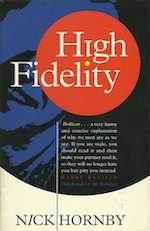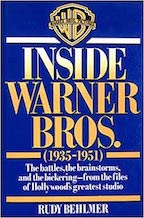AmateisGal
I'll Lock Up
- Messages
- 6,126
- Location
- Nebraska
The series is AMAZING. I enjoyed it very much.Now listening to NPR, The Queen's Gambit featured, its director and Chess.
I missed the book and series, love this. Another to do list entry.
The series is AMAZING. I enjoyed it very much.Now listening to NPR, The Queen's Gambit featured, its director and Chess.
I missed the book and series, love this. Another to do list entry.
View attachment 281742
Forever and a Day by Anthony Horowitz published in 2018
Apparently (I Googled it), there are forty "officially licensed" James Bond books: the first fourteen by Ian Fleming and the rest by reasonably well-known authors. I had already read a couple of the more recent efforts, Devil May Care by Sebastain Faulks and Trigger Mortis by Anthony Horowitz, and found them entertaining but somewhat uninspired. So, it was with modest expectations that I gave Horowtiz's more-recent attempt, Forever and a Day, a try.
I was nicely surprised. Set in the early fifties, the book opens by showing how James Bond became a Double-0 agent. Not being steeped in all the Bond lore, I don't know if this is consistent with the Bond canon, but it's fascinating to see the process at MI6 for how an agent gets elevated to the esteemed and rarefied position of Double-0. Horowitz handles it very well even taking us through Bond's first day on the new job and his first meeting with M as a Double-0. Oh, and we learn how Bond got the actual 007 number.
After all that fun inside-Bond stuff - including his first time bantering with Moneypenny - the story takes a more predictable path as it must, but Horowitz continues to personalize Bond. In his first assignment as a Double-0, we see a "rookie" Bond investigating the murder of a Double-0 agent (Bond's his replacement) that took place on the southern coast of France.
But instead of outsized action-adventure sequences at the start, we see Bond more as a smart detective following the former path of the murdered agent and hunting down small clues. It's been awhile since I've read any of the original Fleming books, but from memory, it felt more like those where the story built up logically and, somewhat, believably.
And as other characters are introduced, a not-Felix-Leiter CIA agent and a mysterious female agent provocateur, Madame 16, Bond's relationships develop naturally. In a wonderful casino scene - which, in the acknowledgments, Horowitz admits he cribbed from Fleming's notes for a TV script - Bond "meets" Madame 16 when he disrupts her elaborate efforts to win at blackjack - vingt-et-un in France.
Here, too, less is more as the stakes are high but not insane, Bond's actions clever but subtle and Madame 16's response controlled and studied. Neither we nor Bond yet know if she'll be friend or foe. However, from that tense game and Bond and Madame 16's ensuing conversation over drinks, we learn that she is a professional and experienced "freelance" spy and, of course, alluring. It's a classic Bond casino story, but it felt smart and fresh owing to the thoughtful and original details as Horowitz channeled Fleming.
From here, the story continues along the established Bond arc, but it never loses its personalized and natural feel. I'll try to avoid most spoilers even though it's not as if you don't know the outcome of a Bond book before you open it. As his investigation advances, Bond faces off against a Corsica drug kingpin - a glandularly damage man of prodigious fat and muscle - who has somehow teamed up with an apparently legitimate American businessman in the photographic film business to do something big, but what?
Mainly taking place on the southern coast of France, Bond and, eventually, in an uncertain partnership, Madame 16, follow clues to a massive chemical factory, the American businessman's mansion, a heavily guarded and deep-in-the-woods film factory and finally to a huge, new, state-of-the-art cruise ship. All these are traditional Bond venues that allow for a standard mix of espionage, nerve-racking tête-à-têtes, glamour, drinks, sex and plenty of action adventure.
Along the way, Bond is captured, tortured, escapes, kills a bunch of henchmen, is captured again, tortured again, kills again and, then, with Madame16 (and yes, he eventually sleeps with her) makes a last-ditch desperate attempt to thwart the villains' plan, which includes flooding the US street drug market with cheap heroine. Basically, it's Bond by the numbers at this point - as it has to be. But Horowitz keeps the "scale" of the plot and Bond's ability to prevent it almost believable versus the movie's always-go-bigger ethos.
Even the de rigueur final confrontation-and-twist scene is handled with nuance and a reasonable amount of verisimilitude versus having Bond morph into a superhero. To be sure, throughout, you need to suspend reality here and there, but like those early Fleming books and Bond movies, you can almost kid yourself that it was all possible.
A big part of why it works is because it takes place in the '50s, a time tailor made for a single spy like Bond to take on megalomaniacal villains as the technology of the day hadn't eclipsed the ability of one man to master and employ it. If those in control of the Bond franchise want to expand its market, they could bifurcate the movies into, yes, continuing with the modern ones, but also launching a series of period-Bond movies set in the '50s. Horowitz's book would be an excellent jumping off point for those early Bond-movie efforts.
This sounds fascinating! Adding it to my MASSIVE TBR list.
I started reading the Federalist Papers last night. In today’s political climate it’s a great view into the complexities of a constitutional government. Alexander Hamilton, James Madison, and John Jay published great theories outlining and paving the way for the United States Constitution. I’m enjoying it and I look forward to reading more this evening. Steven

Also going to start reading Ginger Rogers' autobiography.
and there is JBS founder Robert Welch himself -- injecting a mainline dose of conspiracist paranoia into the 1960s Republican Party. Oh, and coming up with "documented proof that President Dwight D. Eisenhower is an active and conscious agent of the Soviet Union."
There's a lot of sadness here as Ms. Connor, bit by bit, sees the "certainties" and "fundamental beliefs" for what they really are, only to see those beliefs and attitudes mutating into new guises in the 21st Century...
"And coming events cast their shadows before.
I tell thee Culloden's dread echoes shall ring,
With the bloodhounds that bark for thy fugitive king."
-- Thomas Campbell.
Just finished Northanger Abbey and now we'll into Mansfield Park as I once again do a turn about Austen as one of her characters would say.

 John Lofgren Monkey Boots Shinki Horsebuttt - $1,136 The classic monkey boot silhouette in an incredibly rich Shinki russet horse leather.
John Lofgren Monkey Boots Shinki Horsebuttt - $1,136 The classic monkey boot silhouette in an incredibly rich Shinki russet horse leather.  Grant Stone Diesel Boot Dark Olive Chromexcel - $395 Goodyear welted, Horween Chromexcel, classic good looks.
Grant Stone Diesel Boot Dark Olive Chromexcel - $395 Goodyear welted, Horween Chromexcel, classic good looks.  Schott 568 Vandals Jacket - $1,250 The classic Perfecto motorcycle jacket, in a very special limited-edition Schott double rider style.
Schott 568 Vandals Jacket - $1,250 The classic Perfecto motorcycle jacket, in a very special limited-edition Schott double rider style. ^^^Casablanca^^^
Ingrid Bergman and Bogie. The perennial timeless question. Rick struggled and came to the only correct
conclusion, all things considered. Fated love, heartbreak, Paris. Ilsa. What a woman.
Thankfully, Warner Bros made this flick.